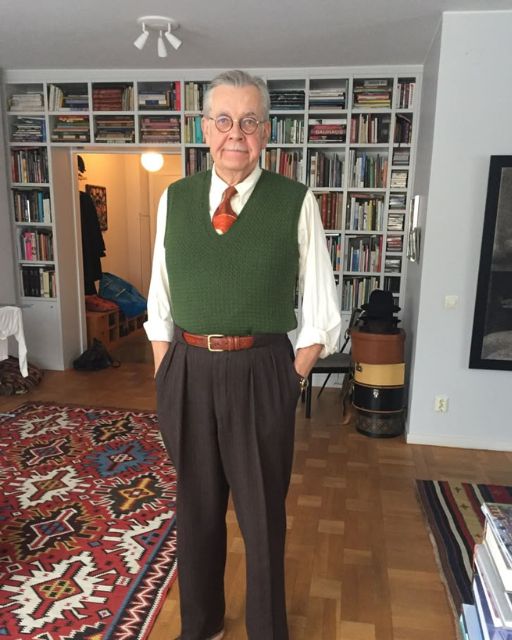It all started with a single bookshelf.
It wasn’t anything grand—just something my grandfather made in the garage after my grandmother passed away. He said the silence at night felt overwhelming without the sound of her reading. So he filled that void the only way he knew how: with stories. Piece by piece, he began collecting them. Thrift shops, sidewalk bins, forgotten donation boxes—he rescued them all.
At first, he just wanted a room full of stories. But one room turned into two, then three. Soon, when I visited, I noticed that all the furniture had been moved aside and replaced with organized sections: Memoirs, History, Modern Poetry, Mystery with Dignity (his label, not mine).
He called it “The Open Shelf.”
There were no signs, no set hours—just one rule: “If you open a book, leave with a better thought than you came with.”
Word spread faster than we could have imagined. Teenagers started showing up after school, quietly browsing shelves they would never have approached in a formal library. Some had never picked up a book for enjoyment before. But here, in Grandpa’s living room, they sat and read—no questions asked. He’d quietly leave tea by the window, nod, and let the words do the work.
One day, while I was cleaning his kitchen, a middle-aged man knocked on the door, arms full of worn paperbacks.
“Is this the house with the library?” he asked. I nodded and welcomed him in.
“I’ve been coming here for months,” he said, placing the books down. “It saved my life.”
He shared that he had hit rock bottom after a divorce and losing his job. “I didn’t expect anything from this place, but I picked up The Alchemist… and something inside me shifted. I remembered how to hope.” That little room full of books had become more than just a library—it was a sanctuary.
Others came, too. A woman struggling with anxiety found comfort in self-help books. A teen skipping school became fascinated with space exploration. A painter rediscovered his passion for art through an old drawing manual. Grandpa’s project wasn’t just changing lives—it was reviving them.
Soon, people began leaving things behind—books, thank-you notes, small envelopes of cash. I mentioned it to Grandpa one night. “We should probably tell them it’s not necessary,” I said.
He smiled, his eyes twinkling. “Sometimes people want to give back. I don’t need the money, but I could always use more stories.”
Then one day, a well-dressed woman appeared. She worked for a nonprofit and had been quietly observing “The Open Shelf.” She told us what Grandpa had created was rare—something that was deeply needed in communities everywhere.
She offered support: volunteers, resources, funding—but only if Grandpa was open to expanding.
He declined. “I’m not running a business. I’m just opening a door to peace.”
She respected his decision—but karma, it seemed, wasn’t finished with us.
Weeks later, Grandpa was nominated for a “Community Hero” award. At the ceremony, as he accepted his plaque, he simply said, “I didn’t build this alone. We all did.”
That night, the nonprofit returned with a new offer: a generous grant to help the library grow—but with one condition. No ads. No commercial changes. Just stay true to the original spirit.
Grandpa agreed.
Soon, The Open Shelf became an official community space, offering free classes, author talks, and after-school programs. It remained as humble and welcoming as ever, just with more shelves, more stories—and more lives touched.
And the nonprofit? They built a public library in town in Grandpa’s honor.
From a single shelf to a ripple of impact across an entire community, Grandpa’s story reminded me that the quietest acts of kindness can have the loudest echoes. You don’t need grand gestures to make a difference—just a heart full of stories and a door left open.
If his story moved you, share it. Someone out there might be waiting for their own bookshelf moment.
